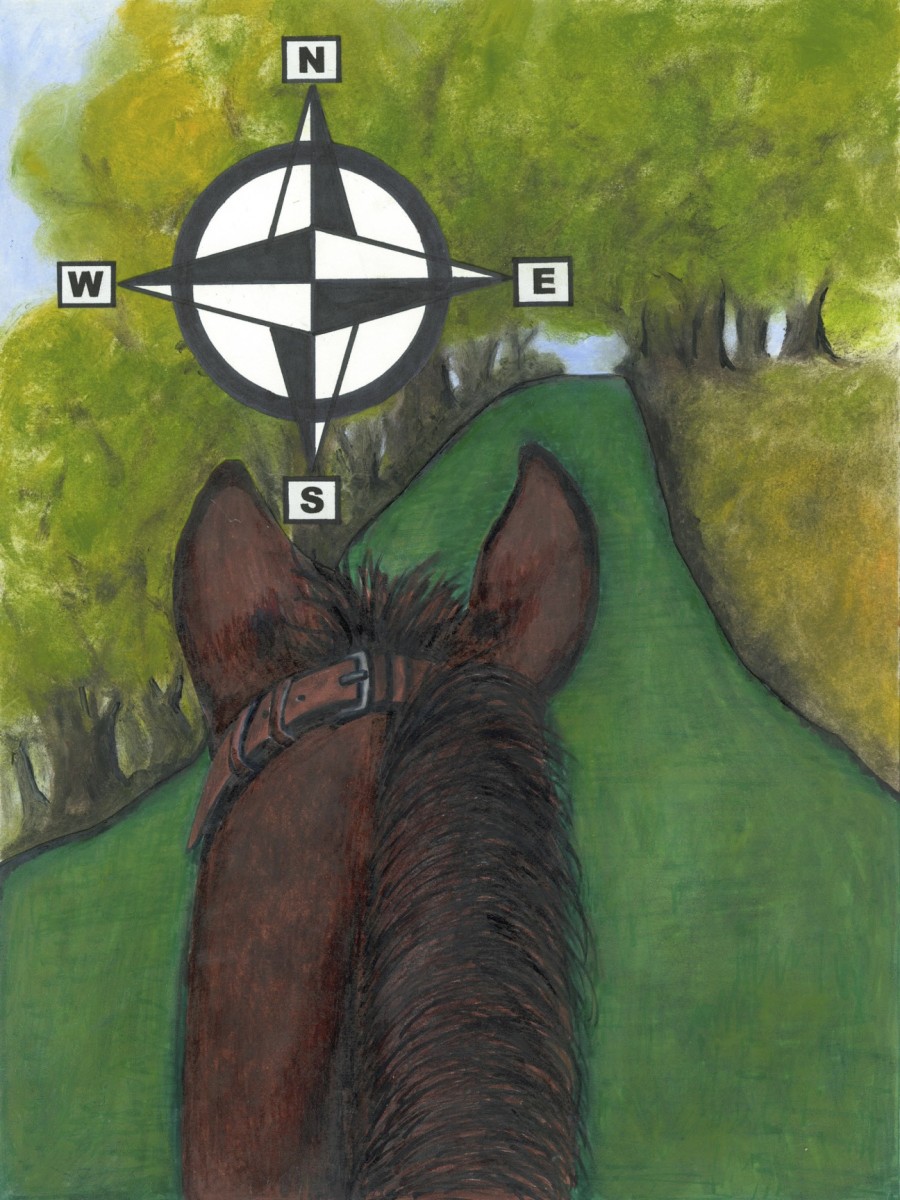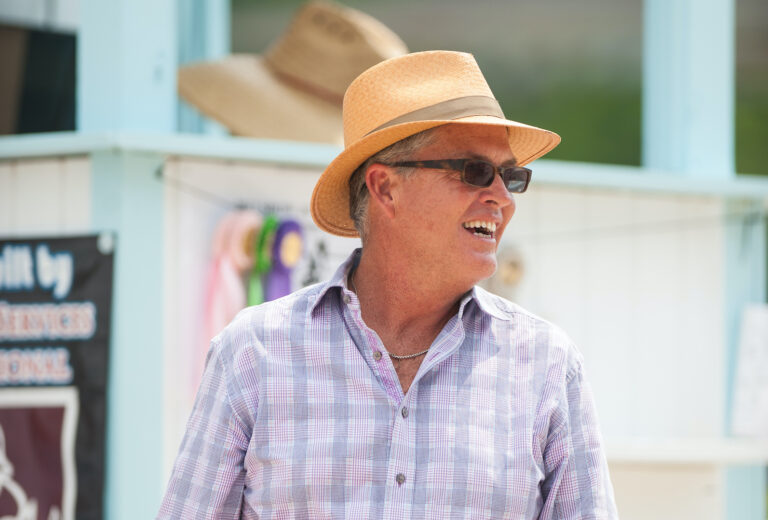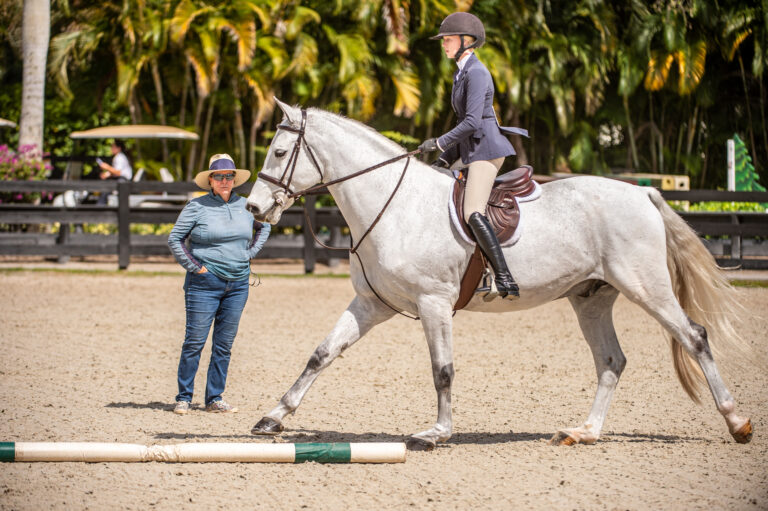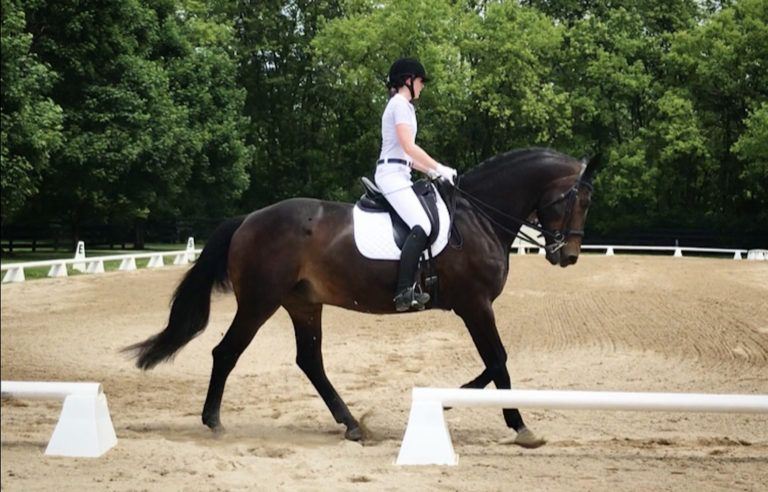Whenever I feel unsure about a big life decision, my friends smile encouragingly and say, “Go with your gut!” While I know the advice comes from a good place, it isn’t helpful. When I listen to my gut, that sly, pesky voice says things like: “Lindsay, eat a donut. Sure, it isn’t good for your health, but it’s good for your soul!” or “Buy the unaffordable breeches. They’ll make you look like Charlotte Dujardin.” I call shenanigans because the breeches, in fact, did not make me look like Charlotte Dujardin, nor did the donut provide any kind of spiritual salvation. That inner voice can be a sheisty little minx.

Given equestrians’ abilities to describe a horse’s gastro-intestinal activity in alarming detail, it’s clear we are great at listening to what our horse’s gut tells us. So then why are we sometimes so bad at listening to our own? I don’t mean that in the literal sense, of course. I’m talking about trusting intuition.
This good old life lesson hit me in November 2019. First, let me rewind. In 2016, I bought a horse who is a solid citizen, knows her way around a show arena and is a darn nice mover—a perfect amateur mount. I loved her right away. Before I bought her, I rode her twice, got professional opinions on her and ordered an extensive pre-purchase exam, which she passed with flying colors, given her age and mileage. It wasn’t until I brought her home that I realized how freaking hard she was to actually ride. I was stuck with a horse who was sucked back behind my leg and either completely inverted or curling behind the bit. I knew I wasn’t an exceptional rider by any means, but I found myself wondering “Am I really THIS incompetent?!” Something inside of me kept screaming that it shouldn’t be THAT hard. Dressage is difficult, but not every ride should be completely demoralizing.
I tried my hardest to do this horse justice. I worked with numerous vets, therapists, trainers, tack experts and more. You name it, I did it.
This was a nice horse. The medical findings were unremarkable. I worked with good trainers. So, what was the problem? Why was everything still so hard? My mind flashed back to my childhood when my trainer wisely preached that a bad ride was never the horse’s fault. I took the advice seriously and learned to always blame myself for our shortcomings. I assumed that I was the one holding us back. My gut nagged me with a feeling that there was more to the story, but given that I had explored every possible avenue, logic silenced that voice.
Fortunately, we had some beautiful moments in between all of the hard stuff. I loved the horse, and I believed in her—even if I didn’t believe in myself. Slowly but surely, we figured each other out.
Then, in November 2019, a new vet found the missing piece of the puzzle. Severe kissing spine explained everything. As I saw her radiographs flash on the screen, I felt a strange mix of emotions: sadness and guilt, but also a flood of relief that I wasn’t crazy. I wasn’t simply a terrible rider. Just as my gut had told me, there was an entire chapter missing from the book. And finally, it all made sense. I felt validated. There was truth behind that voice.
The experience made me look back on my 20-plus years of riding with a different perspective. I thought back to my eventing days when I beat myself up for never competing past Novice level. Even with the most reliable horse and best coaching, I couldn’t get myself around a course. “Normal” people describe getting butterflies on show day, but I felt a deep sense of dread. I fought that for a long time because if I gave in, I thought it meant I wasn’t brave or tough or strong.
I was—and still am—in complete awe of eventers. What they do is incredible. But I realized I had confused my admiration of those athletes with my desire to actually be one of them. What I had mistaken as cowardice in the start box was actually just a longing to be in the dressage arena. And my perceptive little horse was the first to point it out.
These days, I try to bring those lessons with me into the ring. But my trainer still has to remind me to trust myself. Isn’t real riding all about feel, anyway? Yes, the theory and technique are important, but we can’t find harmony on the back of a horse if we’re trapped in between the pages of a textbook.
Maybe it’s that intangible quality that makes life with horses so special. They respond to things that are imperceptible to us humans. They’re incredibly intuitive.
I remember a blistering hot summer day many years ago when my friends and I had gotten lost on a trail ride in a state park. We had—unintentionally—been out for hours and everyone was dehydrated and overheated. The horses were lathered in sweat. Panic was starting to set in, and we assumed we were miles from home. We noticed that our horses kept wanting to drift in one direction, back toward a plot of land clearly marked “Private Property. No Trespassing.” As we turned away in the opposite direction, my mare started to lose her marbles, tossing her head, grabbing the bit and wheeling around on her hind legs. None of us had better guesses on how to get home, so we eventually gave in and let the horses lead us onto the land. Their footfalls quickened, but oddly, their demeanors relaxed. Within a few short minutes, we could see the rooftop of the barn come into view, peeking out above the trees.
We humans might have felt lost, but the horses weren’t. The answer was there all along. We just had to listen. Speaking of which, I think I hear another donut calling to me.
About Lindsay Paulsen
Lindsay Paulsen was Practical Horseman’s Managing Editor for Dressage and DressageToday.com’s Digital Editor. She’s a USDF bronze medalist and enjoys competing her mare, Ulita O (“Fenna”), at Fourth Level and spending time with her retired event horse, Femme Fatale (“Kat”). She currently trains with Grand Prix dressage rider Jeff Lindberg near Saratoga Springs, New York.










